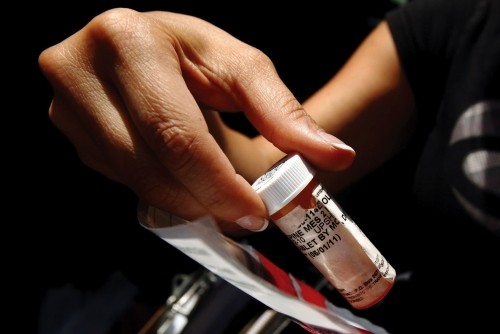When University of Arizona junior Emma Webb started going to raves, it was like love at first sight. For Webb, the rave community is like a world she had always dreamt of, but never found — until she did. Like plenty of other UA students, Webb has found herself feeling more connected to the festival culture than ever. But for her, and other young people alike, the beauty and mystique of the rave community isn’t all that it may seem.
“People want to turn a blind eye because it’s not pretty to look at. You can’t in this situation. You have to approach the situation with empathy and understanding. We’re young, we’re dumb, people are going to do drugs. That doesn’t mean you have to die,” Webb said.
In the late 1990s the opioid epidemic began its first wave — according to the CDC. At that time, overdoses were primarily related to prescription opioids — Oxycodone and Vicodin types alike.
The drug era at the time tells the all too familiar story of nationwide pharmaceutical negligence scandals synonymous with the Sackler family and Purdue Pharma. The second wave is believed to have started in 2010, abandoning the prescription era and marking the beginning of a rapid increase of heroin overdose. But, most college-aged kids aren’t doing heroin.
So, why are pediatric overdoses 30 times more than what they were in 2013?
The short answer is, because college-aged individuals aren’t doing heroin. Incidentally, the long answer is also because most people aren’t doing heroin. The last wave of the opioid epidemic began in 2013, marking the rise of synthetic opioids — more specifically, the rise of fentanyl. An artificial opioid 50 times stronger than heroin and 100 times stronger than morphine, the fentanyl crisis has become an epidemic in America, and it’s only getting worse.
Last summer, Webb began preparation for some kind of solution to this problem. A dedicated rave-goer since 2020, she had seen first-hand the effects of fentanyl — especially on young people. Being a rave-lover and also a student at one of the most notorious party schools in America, the psychology major knew she needed to do something to bring some kind of awareness to young people about the growing problem.
In August of 2023, Konekted by Emma Webb was born. The brand, started by Webb, is a merchandise company with the goal of drug education, harm reduction and testing substances.
“I didn’t even know that you could test your stuff in high school. I had no idea that was a thing until I got into festivals and raving,” Webb said. “So, the idea just came into my head, ‘people need to know,’ because I didn’t know when I was in high school.”
The response to her business has been immense, especially here on campus. The junior has released fashionable sweatshirts, T-shirts and hats — all emphasizing the importance of self-testing drugs in colorful letters.
According to the Konekted website, the business focuses most on distribution of life-saving resources like Narcan and fentanyl testing strips — items that party-loving college students may need to know more about. Through her business, Webb has served as a catalyst of sorts for more open conversations about harm reduction and drug safety — including here at the UA.
“You get so swept up in the party culture and it happens so fast for so many people coming into this school that they don’t even know that they need to be scared of these things. A lot of them just don’t have that knowledge,” Webb said. “We have to instill the fear of God. The fear of fentanyl in people.”
Some young people may not understand how diligent someone needs to be regarding drug consumption, especially in 2024. Fentanyl is not only on the streets — it can be inside of fraternity houses or in the pills some take before a music festival.
While it may be unreasonable to expect a halt of drug activity, it’s dangerous to neglect the reality of what has infiltrated the drugs available.
For Webb, there was no better time to start the conversation at the UA.
“People don’t want to talk about drugs. They don’t want to admit that they’re doing drugs,” Webb said. “Somebody has to bite the bullet and be like, ‘Wake the fuck up.’”
Follow the Daily Wildcat on Instagram and Twitter/X









